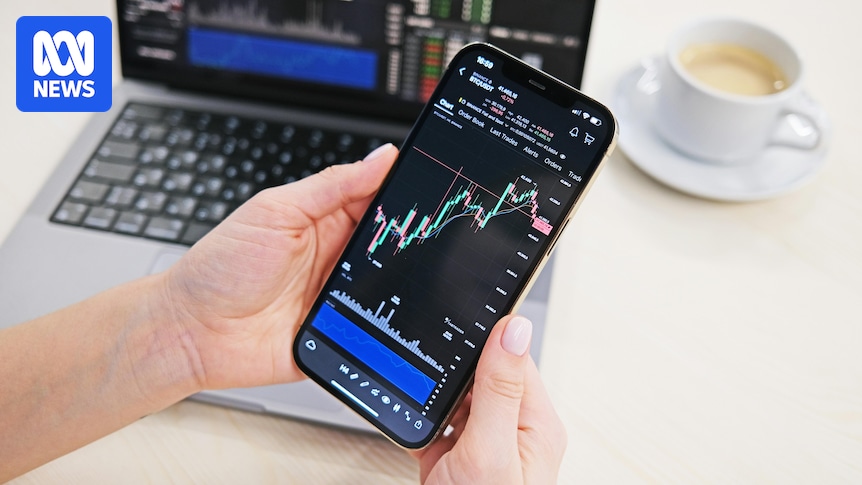
Global financial markets are reportedly entering a euphoric yet potentially perilous speculative phase, according to analysts. This new wave of investor excitement is reminiscent of past frenzies, characterized by a surge in interest for so-called “meme stocks,” which gained popularity through social media platforms. However, the current trend extends beyond meme stocks to include cryptocurrencies, gold, and small-cap stocks—those with relatively low prices.
In Adelaide, a woman named Lisa, who prefers to use only her first name for privacy, has embraced this trend by investing in penny stocks. These are shares of small companies trading at low prices, and Lisa focuses on sectors like resources, information technology, and pharmaceuticals. She began her investment journey in 2001 with a modest $500, which has since grown into a $100,000 portfolio, boasting an impressive annual return of 18 percent—significantly higher than the typical stock market return of 7 to 10 percent.
The Role of Social Media in Stock Market Trends
Lisa attributes part of her success to engaging with other investors on social media platforms. “One of my favorites would be Straw Man, a private investors club where people share ideas of companies they’ve researched,” she explained. She also frequents platforms like Hot Copper, Inside Trader, The Motley Fool, and MSN News for inspiration, conducting her own research thereafter.
This trend of retail investors leveraging online forums became particularly prominent during the GameStop phenomenon in January 2021. Retail investors, inspired by positive reviews on Reddit, bought up shares of the American company GameStop, leading to significant financial losses for large investment firms that had heavily shorted the stock.
The Return of Meme Stock Mania
Henry Jennings, a senior portfolio manager at Marcus Today, notes a resurgence in this type of frenzied trading activity. “We’re back with the meme stocks again, whereby a group of retail investors or punters target stocks that are heavily shorted, looking for a catalyst,” he said. This strategy involves betting against stocks by borrowing and selling them, then repurchasing them at a lower price.
GameStop’s scenario in 2021 serves as a cautionary tale. When retail investors began purchasing the stock en masse, the price rose instead of falling, causing significant losses for those who had shorted it. “If there’s enough of them doing that at one particular time, they can push stocks to outrageous gains and outrageous moves,” Jennings remarked.
Roger Montgomery of Montgomery Investment Management has observed similar patterns, noting recent spikes in the share prices of companies like Wendy’s, GoPro, and Krispy Kreme. “That’s telling you that things are getting a little bit hot again,” he commented.
Optimism and Risks in the Current Market
Despite the excitement, Jennings cautions that investor euphoria is gripping financial markets, likening the situation to “Star Entertainment looking like a Sunday afternoon bongo club.” He attributes this exuberance to “animal spirits” running high, with global markets reaching all-time highs.
Montgomery points out that central banks’ cash injections are buoying stocks and other financial assets. For instance, the Chinese Central Bank has injected approximately 10 trillion renminbi into the market over the past six months. Meanwhile, the US Federal Reserve is anticipated to engage in Quantitative Easing to counter potential economic slowdowns from tariffs.
However, risks abound. Analysts highlight concerns over US President Donald Trump’s global tariffs, China’s economic health, and rising bond yields, which could negatively impact stock prices. Jennings warns that the most dangerous risks are often the unseen ones. “It’s the 70 percent of the iceberg below the waterline that kills the Titanic, not the one that you ram head-on,” he said.
Looking Ahead: Market Implications
As Australian companies prepare to report their full-year earnings for the 2024/25 financial year, analysts remain cautiously optimistic about their profitability. Additionally, potential interest rate cuts could stimulate economic demand by early next year.
For investors like Lisa, the strategy remains long-term. “Yes, stocks do go down, but on average they always go up at some point,” she stated. “Even if they’re down for six months, a year, two years, they will go back up again to what they were at, or above what their previous high was.”
As the financial community awaits the second-quarter inflation figures from the Bureau of Statistics, which could influence the Reserve Bank’s interest rate decisions, the market’s future remains uncertain but filled with potential.






